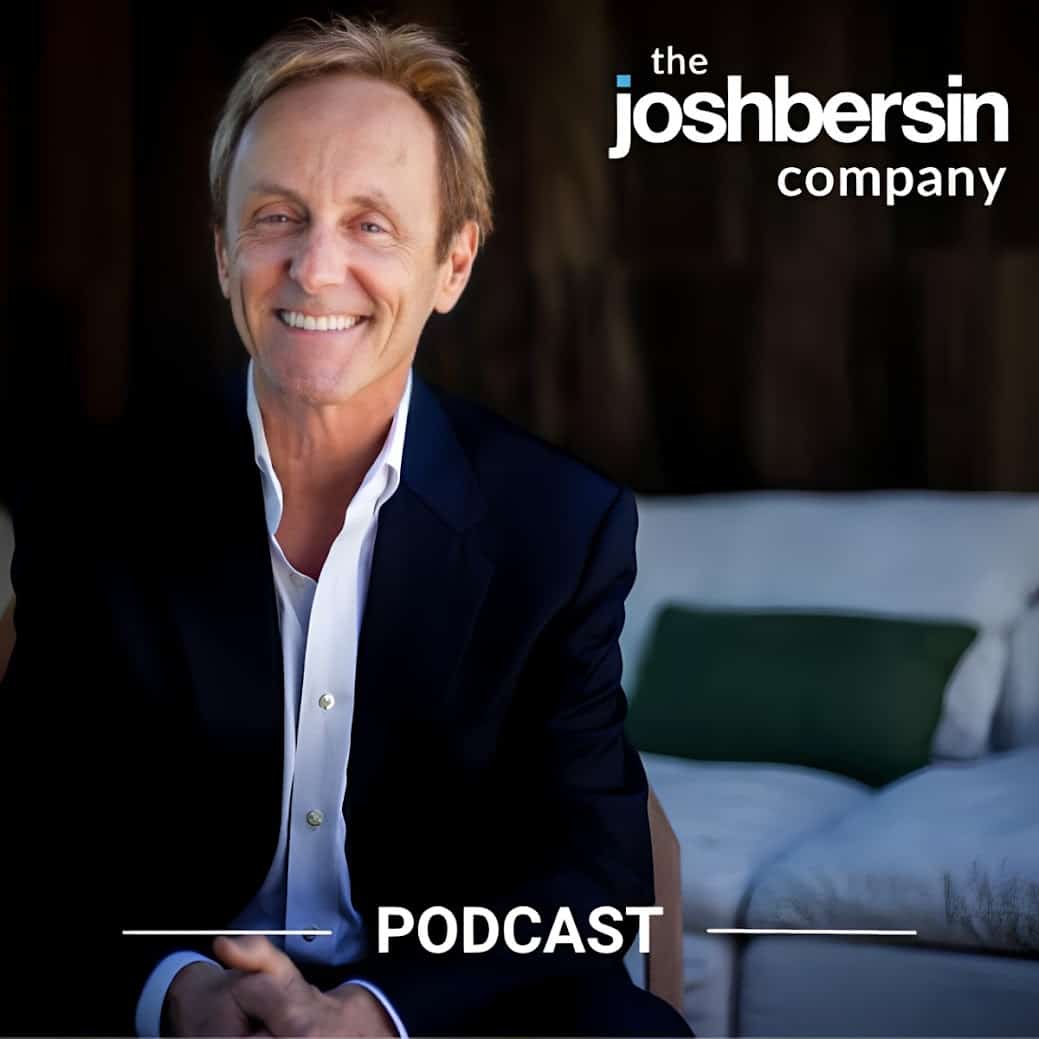Episode Transcript
[00:00:00] Okay, I'm going to be spending a lot of time on SAP in a minute, maybe the next podcast. But before I do that, I want to talk about the developer conference at OpenAI that just happened yesterday, and how that thing, that platform, that 800 million user base company, has the potential to really revolutionize the way we learn. And I don't know if they completely even understand this yet, but they are demonstrating now exactly the revolution in L and D that we've been talking to you guys about in the corporate world for the last six to nine months. So what they announced was a set of developer tools, and I will link you to the demo by Sam Altman that basically describe how a user in chatgpt could ask a question, interrogate, in this case, Coursera, but it could be any content. Bring the course up in the window, take the course, click through it, ask questions of the course without taking the course, and then continue with their daily work. That, my friends, is exactly what we're doing in Galileo. That's what Galileo Learn does. Because where the learning industry has failed and where it's going is learning through your curiosity, your needs, the issues you're facing in your work or your life and what you want to learn now. Not forcing you to take a course or go through a curriculum or finish a compliance program because the company or the teacher or the educational institution decided that you needed to know. Xyz. Now, in bigger corporations, of course, end to end learning will never go away. There's compliance reasons, there's regulatory reasons, and there's certification reasons where we really want to make sure that people know how to do their jobs for safety, operations, customer service and other reasons. But that I believe is maybe 15% or maybe less of the real learning needs that go on in business. I don't know about you, but I'm learning every day now. Every day there's an announcement or a technology or a change in the economy or the political climate or the stock market or something else that I need to know in order to be relevant to all of you guys. I'm a sort of an avid learning type and I use ChatGPT through Galileo to do this. I would suggest that every one of your workers, superworkers or others, whoever you call them, superworkers, are going to be in the same boat. And when they're curious and when they have a question and when they need help or they just don't understand something, they're going to want to ask a question of a platform. Hopefully it'll be Galileo. And the answer will come back in a credible, validated, sourced form. While ChatGPT isn't thinking about the world that way because they're thinking about the consumer experience, this is the paradigm that we've been looking for in corporate learning. I mean, I hate to say it, but the LXP vendors, the LMS vendors and the content libraries have failed to do this. Now, I don't mean to insult anyone here, I'm in the content business too. LinkedIn has tried to get there from here and they're adding more AI on top of LinkedIn learning Skillsoft has tried to get there from here by buying and building. Percipio degreed has been trying to get there from here, although they're a little bit stuck in the old paradigm probably for some time to come.
[00:03:18] And the LMS vendors, Docebo, Cornerstone and all the others are also trying to get here, but of course they suffer from the problem that most of their R and D has gone into traditional LMS features. And the LMS market is not going away. We're not going to throw all this stuff out because we need it. There are lots of features like manager approval and skills and E commerce and bundling of courses and curriculum based on role and things like that that are still going to be needed. But the fundamental consumption paradigm of how we learn, how we consume information, how we absorb information, how we, how we get new ideas into our mind, into our brain, into our history. Lut thanks is really going to change now when you look at what AI really does, it isn't really that smart, but it's very good at dynamic assembly of content. And in some ways that's what the magic is of the GPT technology is these embeddings that take vast amounts of information and statistically identify the relationship between everything and everything else. And so in a learning platform like Galileo learned or this system that they're demonstrated at ChatGPT, the system kind of knows the relationship between everything. And so when you ask a question, it's not only looking in one place, it's looking everywhere. ChatGPT of course is dangerous because you don't really know what it's looking at. But in the case of Galileo or a platform you build internally, it will only look at content that you trust. So an employee or a worker or a manager could ask a question, by the way, this goes for employee experience and employee self service too. And the answer would be credible and trusted and safe and secure and it would be exactly what the person asked. And so, you know, do you call that Learning. Do you call that employee support? Do you call that knowledge management? That's the big thing is it is all coming together into one experience.
[00:05:14] Now, we're at the SAP Connect conference this week and I'm going to do another podcast later in the week and explain what's going on here. SAP is essentially delivering this in a very, very enterprise class corporate experience. And they're using Joule and we're going to be discussing our announcement with SAP on Joule and they're using agents and they're using the SAP knowledge graph and lots of enterprise class data management to deliver this to large corporations. Because in a large corporation it isn't just a matter of asking a random question. If you're a payroll clerk or an accounts receivable person, or a contract manager or a sales executive, you want to know what contract should be edited in what way? How quickly can we get this through the system? Is this compliant with our other policies? What does this particular deal do to our either accounts receivable or margins or sales revenue? Many, many sort of business implications of the things we ask. Questions that SAP handles that you would never get from ChatGPT or just a learning system. But the paradigm is clear. And the reason that I'm so hot on this, and I'll continue to be hot on this for a long time to come, is there is many billions of dollars invested, or maybe the word is stranded in the corporate learning space. Billions of dollars of content courses, learning management systems, assessments, assessment systems, platforms that do video distribution, platforms that do simulation, and that stuff's going to all come to pass, or rather come to migrate to this new, more dynamic AI first or AI centric experience. Okay? There's a lot of other implications in the OpenAI announcement which I'll talk more about later, but I wanted you guys to be aware of what was announced. I want you to take a look at this video for those of you that are kind of techies and stay tuned and I'll tell you all about our relationship and the announcement announcements from SAP in the next podcast.


